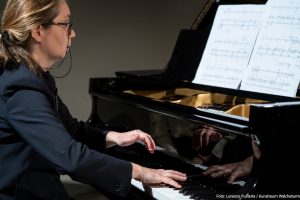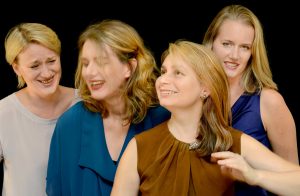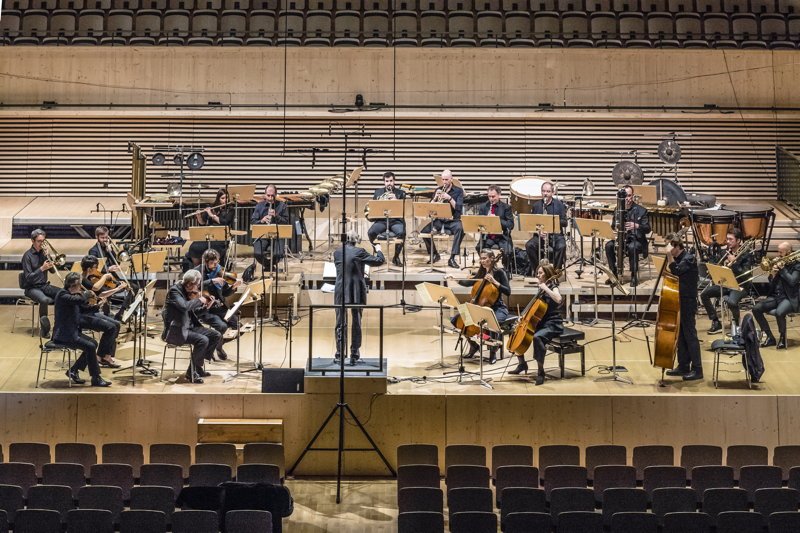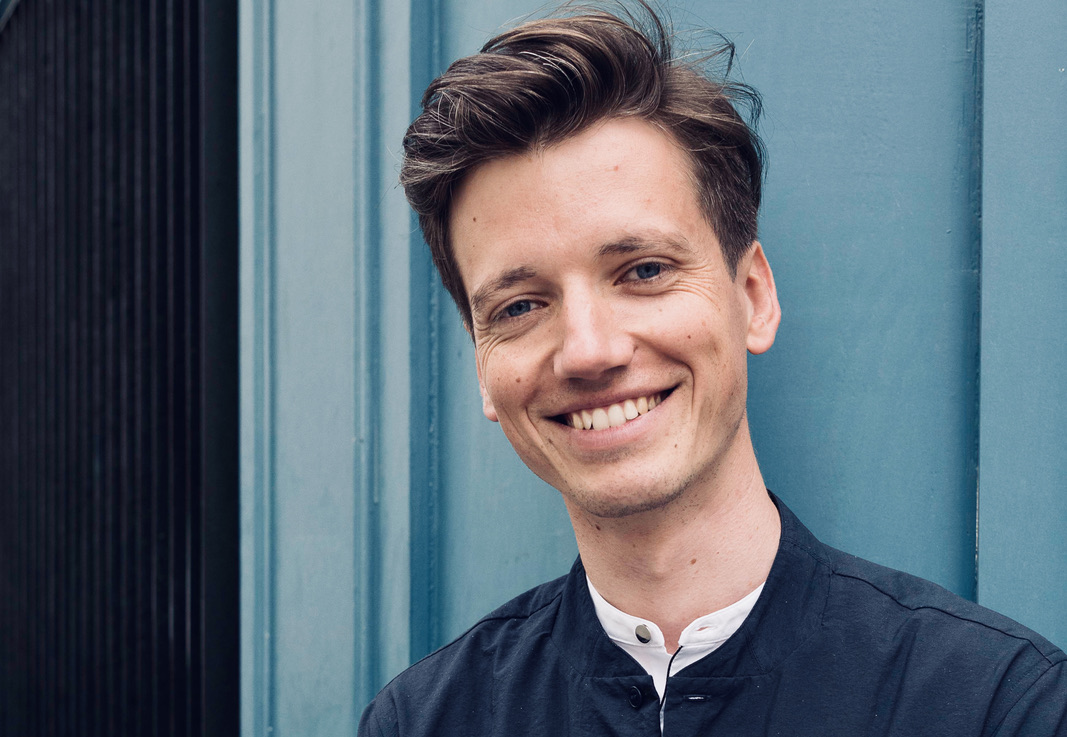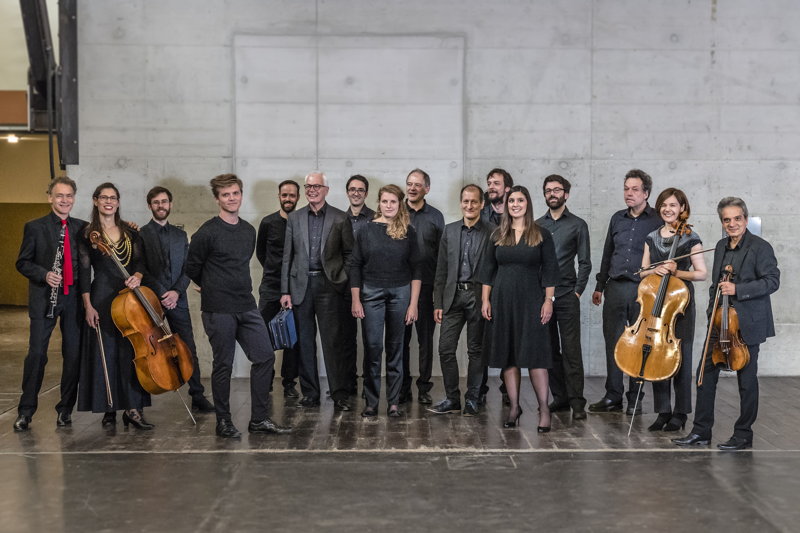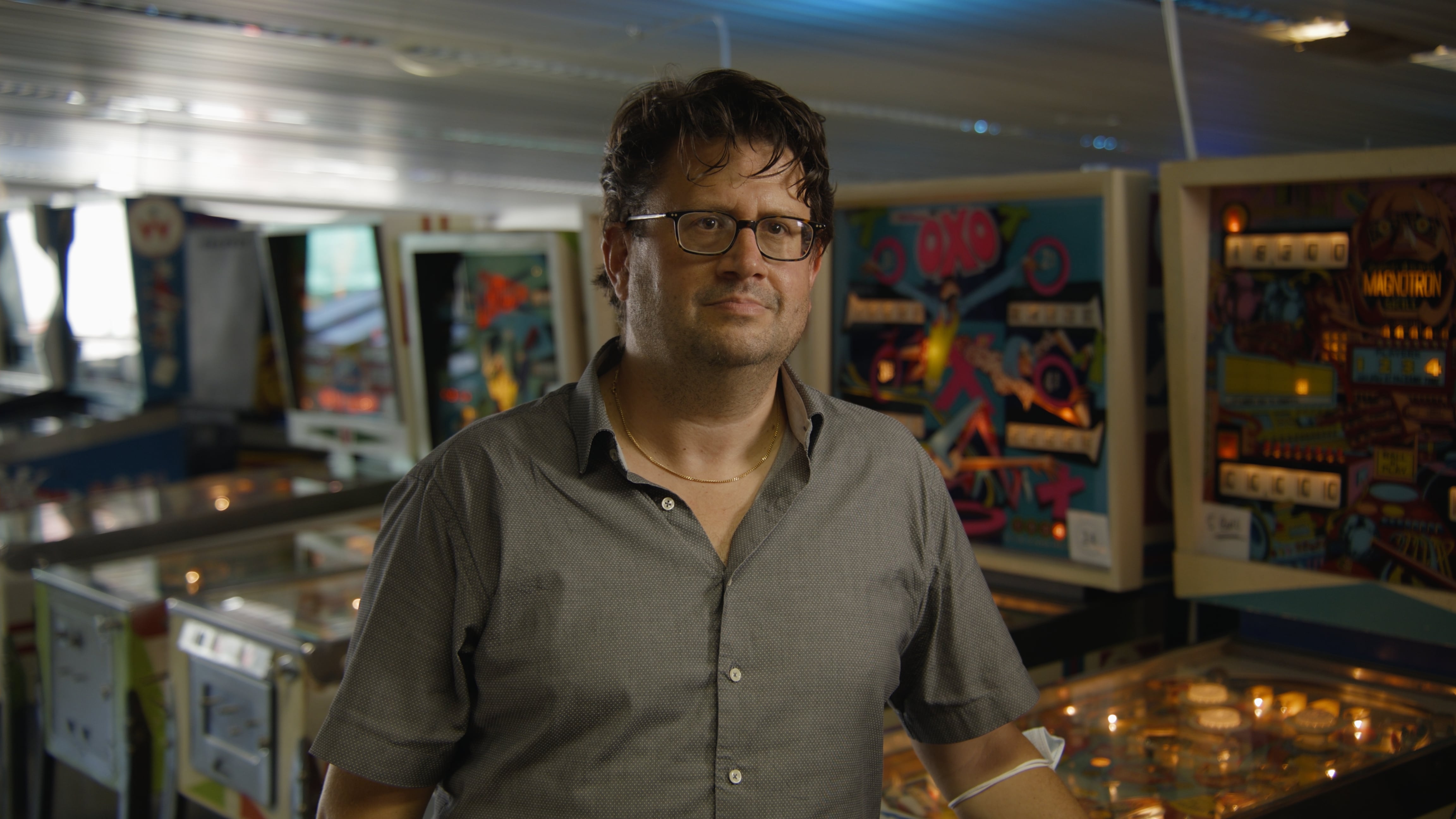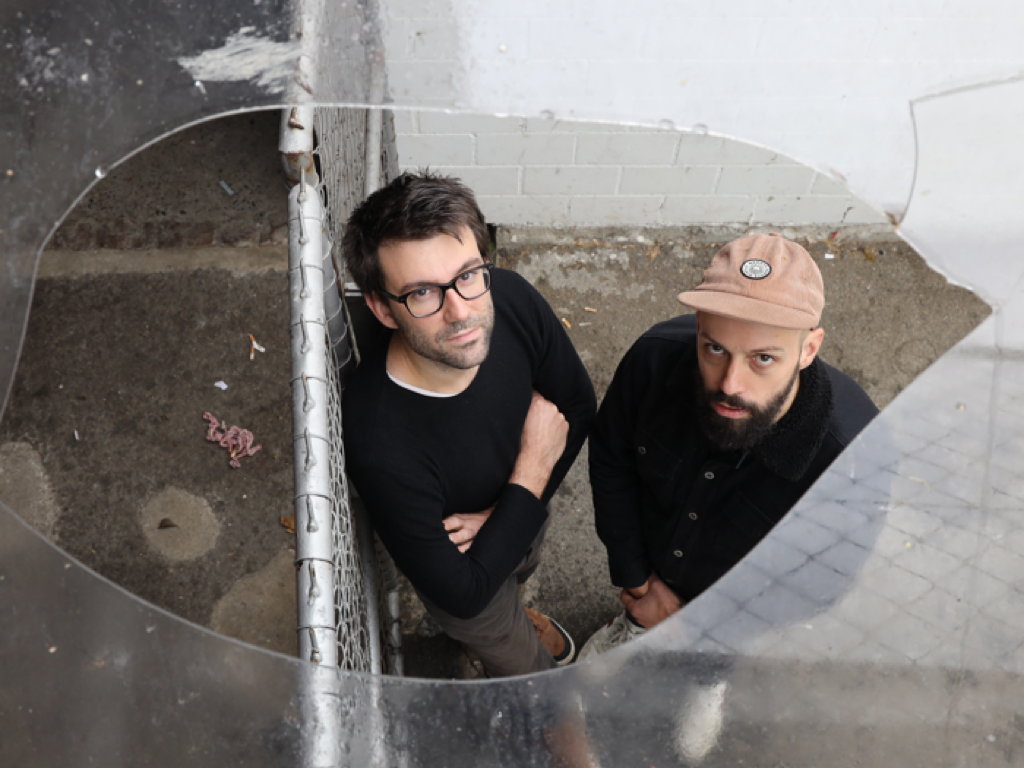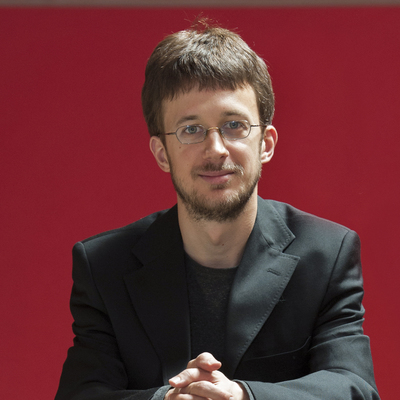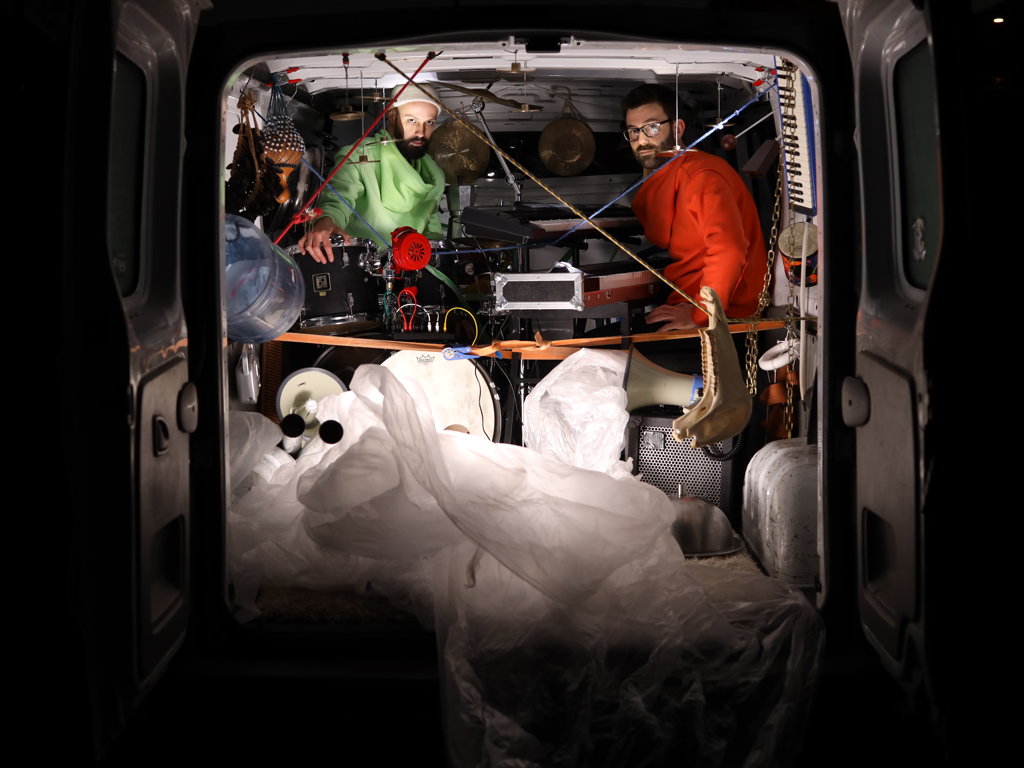Cathy Van Eck, composer and media artist, shapes the Swiss and international contemporary music scene with her subtle and highly aesthetic sound performances. Her piece In the Woods of Golden Resonances for solo percussion played a special role within a dedicated concert evening. A portrait of Alexandre Babel.
Alexandre Babel
The theme sounds like an invitation: Spanish percussionist Miguel Angel Garcia Martin curated a concert evening entitled Aufbau/Abbau (set-up / Dismatle) in the friendly takeover series at Basel’s Gare du Nord, entirely dedicated to solo percussion. Six world premieres to shed light on the logistical reality of professional percussionists. After all, setting up and dismantling for a concert often takes up almost as much time and significance as the music itself. Even if the theme of the evening seems somewhat vague at first glance, it served as starting point for a multifaceted question that all participants made their own by creating a new work. Cathy Van Eck’s In the Woods of Golden Resonances is a unifying example.
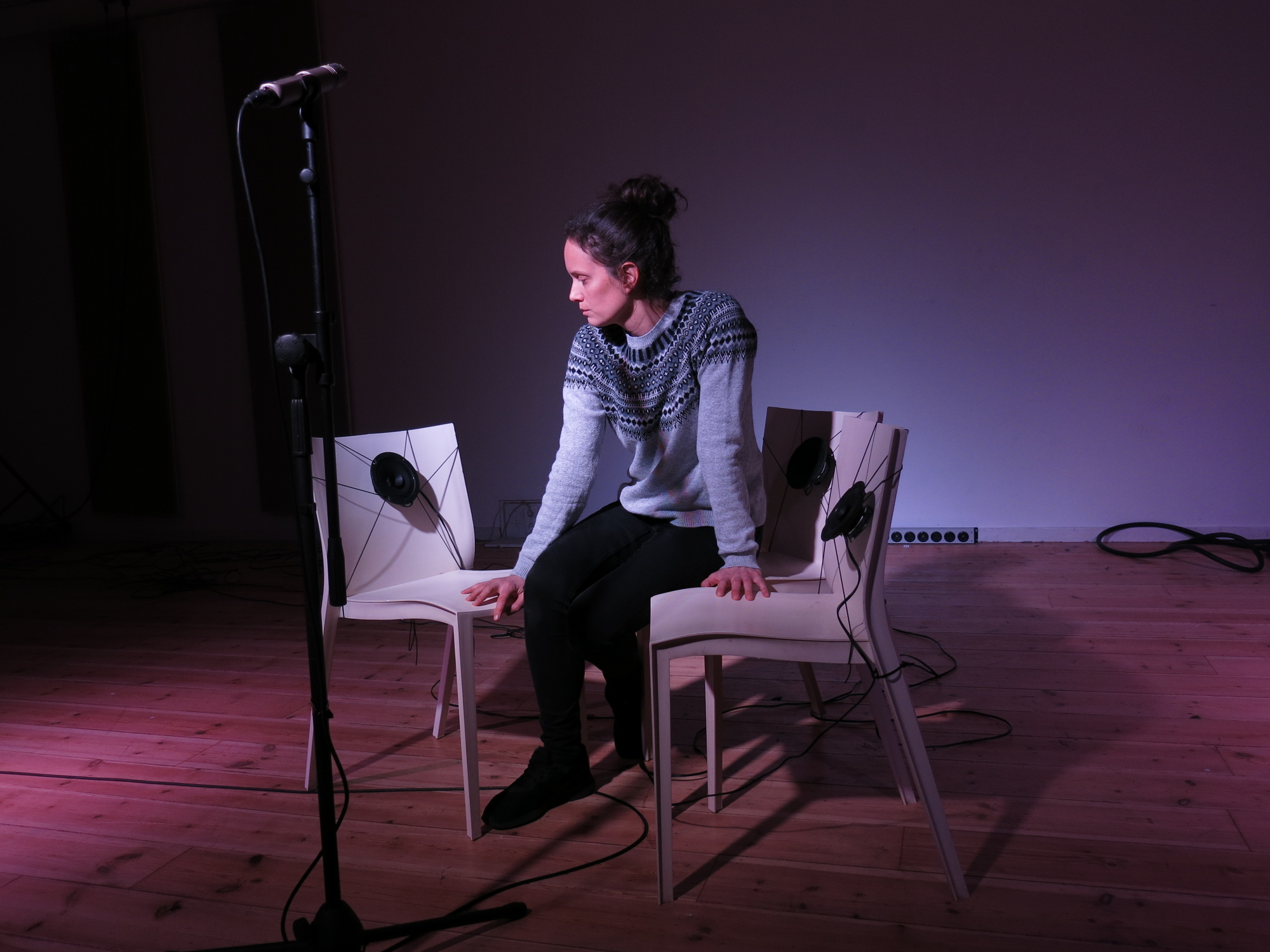
In the Woods of Golden Resonances features drummer Miguel Angel Garcia Martin centre stage, in relative darkness with a red headlamp, so that the audience only recognises his darkened silhouette. With slow and controlled movements, he walks to a cymbal lying on the floor in a corner of the stage, lifts it and then holds it horizontally at mouth height. A clear, amplified breath sound shows that the performer is wearing a microphone and blowing on the instrument as if trying to clear the dust from it. This sound is obviously processed electronically and the playback through the speakers makes up the majority of the sound environment. “The blowing increases the ‘volume’ of the two speakers in the room and creates an acoustic feedback. The whole piece consists of such feedback sounds, as if Miguel were ‘beating’ the room,” says Cathy van Eck.
He then walks to a metal stand on which he places his instrument. This simple but carefully choreographed action is repeated several times with other cymbals hidden in the room, allowing the audience to observe the step-by-step and ritualised set-up of a percussion set on stage.
In Van Eck’s works, the musician’s body often takes centre stage. Dutch-born Van Eck completed her masters degree at Leiden University. Among other things, she publishes and researches regarding possible connections between gestures, sensors and sounds and teaches at the Sound Arts Department of Bern’s University of Arts. “In In the Woods of Golden Resonances there is also a fairly strong relationship between the performer’s movements and his material. His movements are not meant as a gesture of ‘pointing outwards’, with the meaning ‘I control the sound’, but rather as a careful searching and perceiving. That’s why Miguel has a different posture on stage in this piece than in the other pieces of the evening,” says van Eck.
Cathy van Eck, In the Woods of Golden Resonances, Miguel Angel Garcia Martin, world premiere gare du Nord Basel, 9.4.2024.
The strength of In the Woods of Golden Resonances lies in its repetitive, simple formal structure. The piece serves to move from state A to state B and ends as soon as the installation is completed. Cathy Van Eck’s score does not stipulate that the cymbals are to be played once they have been set up. Instead, they serve as a structure for the next piece in the programme, Cymbals by Barblina Meierhans. Van Eck’s piece thus not only translates the theme of the concert exactly, but also establishes a concrete connection to the evening’s next element.
The installation and stage change-over, form the actual piece and while one normally tries to reduce the duration and significance of the reconstruction in order to ensure the musical flow, In the Woods of Golden Resonances does exactly the opposite: it uses this intermediate space between two states for a moment of introspection into the musician’s private sphere. Van Eck’s aesthetic choices emphasise this through the dreamy atmosphere created by the semi-darkness or the sensual impression left by the amplification of the musician’s breathing sounds.
The work poetically evokes the technical reality of the percussionist and his instruments and at the same time connects it with the environment. The spatial dimension of the concert hall is also emphasised. Cathy van Eck explains: “The sounds arise from an interplay between Miguel’s exact position in the room, the cymbals and the loudspeakers, and then of course the room acoustics.”
However, Van Eck goes one step further, as she invites the audience to feel part of the process. Sound effects such as the electronic processing at high volume create an immersive impression and the drummer’s actual ‘ballet’ gives the audience the illusion of beeing part of the process. Finally, she ‘neutralises’ the drummer’s figure through the lighting effect to a simple silhouette that everyone in the audience can identify with. Van Eck explains: “In this case, the lighting was a decision made by Miguel, the drummer, who worked with me and the director. I can also imagine this piece in a brighter environment. For me, the way light is designed, very much depends on the space.”
In the Woods of Golden Resonances is part of a series of consecutive and differentiated works. Within the series, it subverts the usual expectations of a concert piece while respecting its primary code. The sound treatment is so interesting, that it can also be simply ‘listened’ to.
However, the role of the individual work or its creator is called into question in favour of a unity that creates a link between both elements. I ask myself whether the necessity of creation does not lie in the fact that it leads from one state to another?
Alexandre Babel
Alexandre Babel is from Geneva and lives in Berlin. He is a composer, percussionist, curator and publicist. This is his first contirbution to the neoblog and its team.
neo-profiles :
Cathy van Eck, Gare du Nord, Alexandre Babel, Barblina Meierhans
broadcasts SRF Kultur:
Musik unserer Zeit, 29.01.2014: Grünes Rauschen – Klangkunst mit Cathy van Eck, editor Cécile Olshausen.
Onlinetext, 28.01.2014: Bei Cathy van Eck klingt Gewöhnliches ungewöhnlich, author Cécile Olshausen.
Musik unserer Zeit, 16.6.2021: Alexandre Babel: Perkussionist, Komponist, Kurator, editor Gabrielle Weber.
neoblog, 10.09.2021: un projet est avant tout une rencontre.., author Gabrielle Weber.


